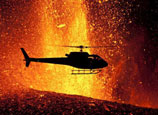
They say that "A wise man does not believe in rumors," but how many people are real wise persons? Due to the information asymmetry and psychological hints in one's mind, many people would rather believe in the rumors. Rumors are more easily inundate and people also tend to believe them when some significant events happen. The panic buying of salt triggered by the nuclear radiation crisis after Japan earthquake is a typical example. As media expert Hu Yiqing had said, "Rumors often come from a widespread social panic and are rampant when a major natural disaster, a social unrest or a war happens. People will feel panic when their life safety is under threat and become excited and credulous of rumors. In addition, they lack of necessary information, which also cause rampancy of the rumors." Controlled by such social mentality, people also become skeptical and credulous even though they have some knowledge of science.
Rumors will cause panic in people's hearts and social order in disorder even out of control. They are unlikely to disappear even if the human society becomes more and more advanced. Of course, it is not entirely helpless in the face of rumors, for example, timely refuting rumors by authoritative departments, expert explanation and improving people's discrimination and awareness of seeking confirmation with each other.
















 Spectacular images of erupting volcanoes
Spectacular images of erupting volcanoes


![]()
